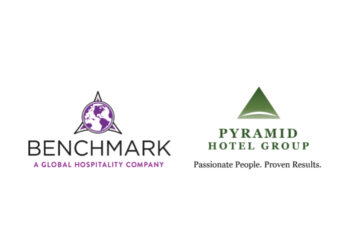Main Highlights-
- after two-plus years of pandemic-forced closures, businesses are finding it hard to handle their business in this economy.
- many industry critics and experts like Tim Peter have shared various opinions and effective measures like the Integration of businesses and understanding of the economy for sustainable growth.
- Promoting a Brand image is very effective to ensure revenue for the business.
Hotel business owners are the biggest affected due to the pandemic and were forced to shut their businesswomen down. Even after opening, the economy right now is a bit tricky and rocky and hotel business owners might need some guidance. Here is an opinion piece channelling the views of Tim Peter, who is the Founder & President of Tim Peter & associates. There are some things that can be done and adopted by hotel business owners.

It’s time for fellow businesses to start budgeting again and “even after two-plus years of pandemic-forced closures, a brief recession, labour challenges, a significant (permanent?) decline in business travel and the ongoing burst of revenge travel, we still find ourselves facing the weirdest economy in history. Nominal wage growth is falling, but inflation continues to rise. Jobs are (mostly) booming, but growth and productivity are falling. Consumer sentiment is the worst in 60 years and business travel may lag for a long time to come, but leisure travel and restaurant purchases are up — in many cases way up.” these are the opinions of Tim Peter, Founder & President, Tim Peter & Associates.
“I mean, seriously. What is happening here? How are hotel marketers and revenue generation teams supposed to budget appropriately in a world gone mad?” he questioned.
However, hope is not lost there are a few steps that work no matter how irritating the economy gets. Here’s what the hotel business gives thought to.
Think ‘Integrated’ For Better Hotel Management
“Your guests live their lives in an integrated fashion. Business travel may not be dead, so much as integrated into leisure trips — I prefer the term “blended travel” — that integrates business and personal travel. And as your customers have learned to work from home, and extended that to work from anywhere, they’ve learned that there’s no need to confine travel into neat buckets of business OR leisure. It’s business AND leisure, everywhere, all the time.”

“The same must be true for your digital efforts. As I’ve said before, no one “goes online” any longer; that hasn’t been true for years. They are online. Your guests carry the internet in their pockets. Or at least they do during those rare moments when they’re not holding their phones in their hands. Digital is fully integrated into your customers’ lives. They’re browsing and buying all throughout their day.” said Tim Peter in his opinions on how business can be managed.
That means that thinking about your guests in terms of “search OR social OR metasearch OR display ads OR what-have-you” misses the point. It’s “search AND social AND metasearch AND display AND what-have-you.” Your marketing must provide an integrated experience across channels to connect with guests when they’re browsing and booking. Each integrated touchpoint feeds into the next to help your guests throughout their journey.
Think ‘Core and Explore’ To Understand The Economy
“Budgeting for an integrated reality requires using a “Core and Explore” model for your marketing spending. There are channels that consistently produce reservations and revenue, such as organic search, paid search and email marketing. Invest first in those core areas. Then be prepared to “fish where the fishing’s good,” allocating further budget to campaigns and channels that deliver above forecast.
At the same time, be sure to leave yourself a bit of budget to “explore” — maybe 10% to 15% to test and learn throughout the year as new opportunities emerge. All of a sudden you find that younger travellers are talking about your market or an event in town on TikTok. Cool. Use some of your “Explore” budgets to jump on the trend and grab your fair share — or, better yet, more than your fair share.”
According to Tim, If you’re not already using this strategy, start talking with your property’s owner or asset manager today about why this matters. They know that we’re in uncertain times. One can Work with them to develop a budget that puts most of your efforts around dependable channels that can also help you move quickly and nimbly as opportunities emerge.
Think Brand
One of the most sustainable trends in digital is a renewed focus on brands. Expedia is reducing its focus on performance marketing — paying for guests one transaction at a time — in favour of driving more business from “high lifetime value” customers who “drive approximately three times the gross bookings per customer and more than twice the gross profit per customer and twice the repeat business as compared to nonmembers.” Airbnb did something similar early in the pandemic.”
What these digital leaders have learned is that, in a world where Google dominates the travel landscape, your best strategy is to have guests search for you by name. Building these relationships depends on great content and compelling storytelling shared via your website, email list, video channels on YouTube and social channels like Instagram and, increasingly, TikTok.
“It also depends on consistent investment. I’ve noted previously that there’s no such thing as free when it comes to driving direct business. But that cost improves as you build a library of assets and stories that you can reuse across multiple platforms. And you only recognize those benefits over time. As the adage states, “the best time to plant a tree is 10 years ago; the second best time is today.”






























